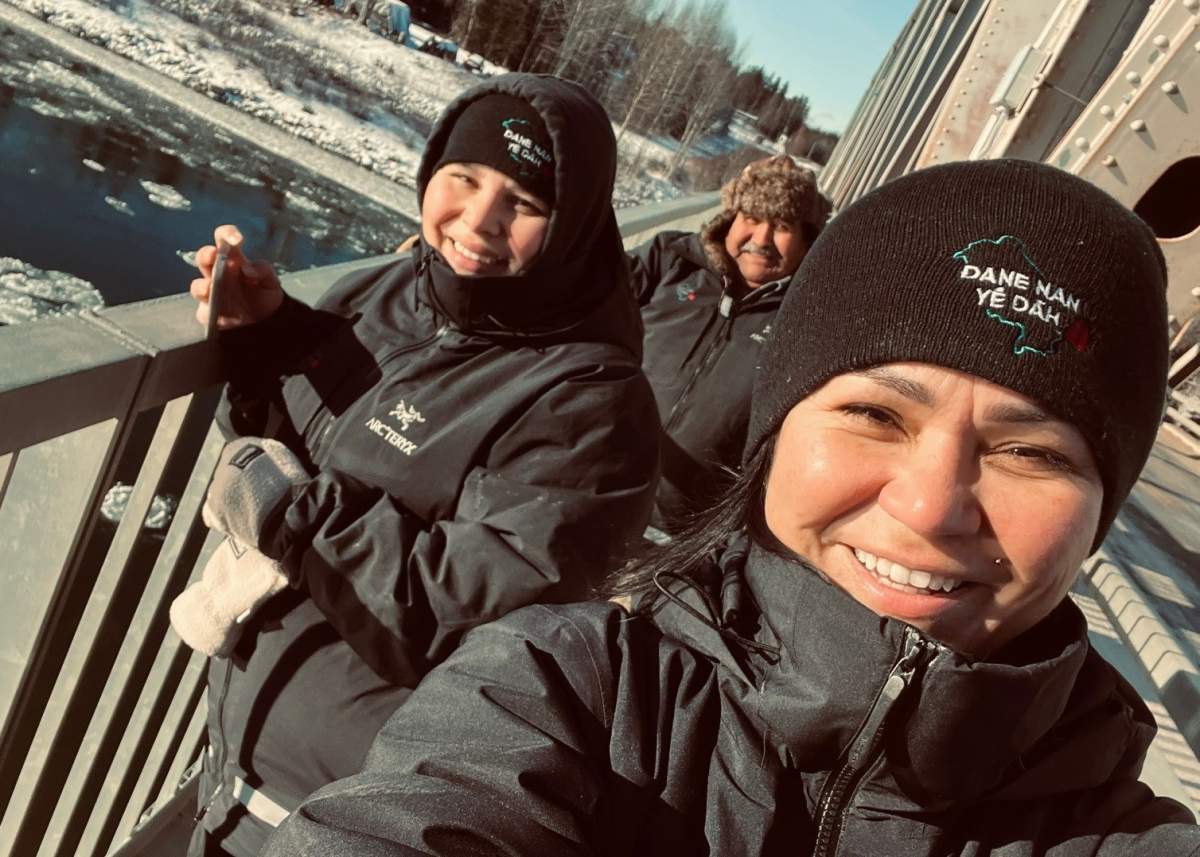Looking for more Indigenous news? Find our stories here.

Countless people living in Alberta, Nova Scotia and other regions of Canada have had their lives turned upside down by wildfires in recent weeks, as the world experiences more and more climate-related disasters.
Among the fire crews, outreach workers and military personnel who’ve been called in to fight the fires are Indigenous Guardians — trained experts who manage protected areas, help restore animal and plant populations, test water quality and monitor development of the land.
“They’re our eyes and ears on the land,” Valérie Courtois, executive director of the Indigenous Leadership Initiative, said.
They’re almost like conservation officers, Courtois said, but have a unique relationship to the land that has been going on for millennia.
“They’re developing strategies (and) mitigating and implementing, in some cases, nature-based climate solutions, whether that is reforestation or carbon management projects, management of waterways, bringing back the practice of cultural burning to reduce the fuel load,” she said.
The Indigenous Guardians have grown exponentially over the past decade, growing from 30 programs at the start to now more than 170 initiatives.
“We’ve more than quadrupled the number of Guardians in the last five years … I hope that very soon we’re going to see a guardian program in every single community (and) nation that wants it,” Courtois said.
With Canada’s goal of conserving 30 per cent of the country’s land and water by 2030, guardians are the “engine” to help make that happen, she added.
“They get to be who they are fully in their indigeneity, but also using the best tools of the modern world. It is partially a sacred duty that we have from the Creator to take care of our lands and waters and the Guardians are kind of the modern expression of that.”

In northern B.C., the Dane Nan Yḗ Dāh Guardians program, cares for Kaska traditional territory, including Dene Kʼéh Kusān, the proposed Indigenous Protected and Conserved Area spanning 40,000 square kilometres. Such areas are lands and waters where Indigenous governments are the primary caretakers in conservation.
Tanya Ball, the land guardian coordinator with Dane Nan Yḗ Dāh, said their capacity is stretched.

Get daily National news
She’s one of two staff who takes care of all the fieldwork: Field monitoring, water monitoring, seismic monitoring, and collaborating with all levels of government.
“We’re going out to help Ecofor, which is an environmental company out of Whitehorse, to do some archaeology work in the Watson Lake area,” said Ball.
“We also do wildlife observations, so I create surveys (on) environmental concerns, hunter camp observations — and that data just gets all locked into our own database.”
The Dane Nan Yḗ Dāh program started in 2015, stemming from elder and community concern.
“We were finding wasted meat, moose that were shot but not gutted. You know, everything just shot and left there,” said Ball. “Cabins were getting broken into and then we had like 1,000 mushroom pickers right by our community of 150 people so there were tons of social issues as well as wildlife concerns.”
Like Ball, Gillian Staveley, director at the Dena Kayeh Institute, is a Kaska Dena member with a vested interest in seeing these initiatives through.
A lot of the work she does is behind the scenes, like working to establish Dene Kʼéh Kusān as a protected area.
“We’ve been pushing forward with our IPCA proposal in B.C. for the past four years,” Staveley said, “and we’re very hopeful that we’ll get to a place where we can be working with the government and stakeholders and the public on trying to manage this land in a better way, according to our values, ways and customs.”
Both women say guardians feel a deep responsibility towards the lands.
“Those duties and responsibilities were given to us by our ancestors and the guardians are the ones that are out on the land, upholding that duty and responsibility to be knowledge holders and storytellers, and educators in a lot of ways,” Staveley said.
Courtois believes the guardians program is also a tool for reconciliation.
“They’re seeing us at our best, not the stereotypes, not the impacts of colonialism, not all of the things that we see in media,” Courtois said.
“But (as people) who are healthy and who have responsibilities and are looked to by others as being respectful and honorable.”
That’s how Canada can become what it should be – respectful, fair, and aware of its history and foundations, she added.
According to Staveley, Indigenous guardians across the country need more support and resources.
“(With) acknowledging the work comes funding, comes that recognition,” she said, “and it really will start gaining traction of Land Guardians being a career, and that’s going to bring our people back home to our communities.”









Comments
Comments closed.
Due to the sensitive and/or legal subject matter of some of the content on globalnews.ca, we reserve the ability to disable comments from time to time.
Please see our Commenting Policy for more.